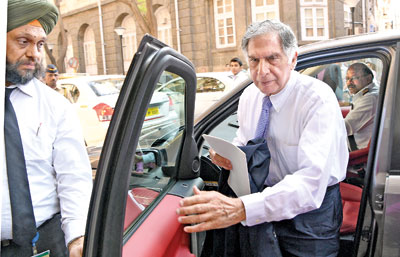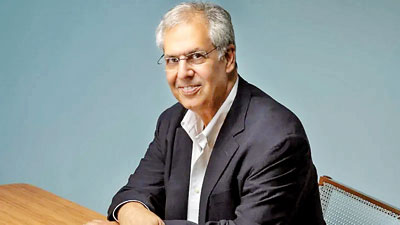Sunday Times 2
The akd presidency must show political maturity in running the ship of state
View(s):What the Anura Kumara Dissanayake (AKD) Presidency and his (rather frighteningly) new administration faces as a daunting challenge up to the General Elections on November 14th 2024 and beyond, is not a lack of good intentions but to prove that it possesses political stagecraft and due capacity to run the ship of State.
Places of religious worship should not be political pulpits
That is a very different matter from rhetoric promising a ‘rich country and a beautiful life’ on the election stage. To say this is not to invite the favorite chant of the National People Power (NPP) party that all those who ruled Sri Lanka earlier were far from being politically mature, this is why the country went bankrupt etc and et al. That is part of the egregious ’76 year old curse’ slogan which worked so effectively during the campaign leading up to an NPP victory in last month’s presidential polls. In fact, this accusation is ‘greatly exaggerated,’ as Mark Twain once famously said to reports of his own demise.

Tata led a “salt-to-software” conglomerate of more than 100 companies. AFP
That clever slogan pushes aside all the good in Sri Lanka’s human development and democratic health since independence from British rule in which enlightened political leadership played a not inconsiderable part, quite apart from yeoman services rendered by distinguished civil servants, judges, legal and medical professionals. This was before venal politicians planted the deadly seeds of civil and ethnic conflict which subverted the State. For that matter, the NPP’s leader, the Janatha Vimukthi Peramuna (JVP) was very much part of those bloody periods where this ‘curse’ inflicted the people.
Regardless, this caution is issued to prevent the NPP’s President falling into the same trap as his predecessors which resulted in one Head of State (Gotabhaya Rajapaksa) ignominiously fleeing the country’s shores. Part of that stagecraft and indispensably so, is desisting from using places of religious worship as political pulpits even if priests, cardinals and the heavens above ask them to. A good example of ‘what not do’ in this instance was President Dissanayake’s recent ill-advised visit to the Katuwapitiya Church to speak to survivors of the deadly 2019 Easter Sunday jihadist attacks, inside the inner sanctum no less.
‘I am repulsed by politicians’
If at all, reaching out to survivors should have been after a concrete result was evidenced from long dragging investigation into the attacks, pockmarked with an admission by an outgoing Attorney General of a ‘grand political conspiracy’ in which the Catholic Church insisted that covert intelligence agents were implicated. In the absence of such, this Presidential visit was not ‘Presidential’ in any sense of the word. Rather, it amounted to distasteful political propaganda close to Sri Lanka’s General Elections on November 14th 2024 where his NPP pits itself against mainstream competitors hoping to gain from the gold of the Presidential win before it tarnishes.
Predictably, family members of the Easter Sunday victims responded bitterly to the President’s assurance that justice will be done. One embittered father (despite voting for him) told him sharply that, ‘if I had known you were coming, I would not have come to church today to be searched and prodded like animals by all this security outside, I am repulsed by politicians and do not trust them.’ He added that, ‘ all of them knew that the attacks were going to happen except us, even you should have known…are you able to bring my children and parents back from the dead?’
Even more cutting was this father’s injunction ‘not to engage in these political shows without coming to church but actually demonstrate justice that will speak by itself.’ The President’s response to this reprimand was measured. He told his angry interlocutor that the members of the JVP at the time had no inkling of the 2019 attacks as they did not have ‘VIP’ security unlike Ministers who had been warned in advance, observing further that for effective change to happen, one must engage the political establishment.
‘System change’ of the Rule of Law
Another mother whose entire family had been massacred on that devastating day asked him, ‘there are innumerable commission reports, committee reports commissioned by past Presidents on the attacks, what is the need for further investigations, has the perpetrators not been identified after all that effort and money wasted?’ She posed a direct question, ‘why not publicly release the reports, why not take action, why does political power protect the untouchables?’ What the President said in answer was that he is not a judge but that he will do whatever is needed within his limitations to the best of his ability.
‘Render unto Caesar the things that are Caesar’s and unto God, the things that are God’s’ he reminded. This is a revered admonition by Jesus Christ to the Pharisees as they tried to trap him into speaking treason against the Roman State by showing him a Roman coin and asking as to whom taxes are due. Strictly speaking however, that Biblical turn of phrase is neither here nor there in this conversation on justice for the Easter Sunday attacks. The whole point was that justice has not come about because the law and the courts have been influenced by hidden political hands.
That is why one survivor asked with breathtaking simplicity as to why judges from the Chief Justice downwards had to be appointed by a President who might be a murderer or a thief. As to how this ‘system change’ in the implementation of ‘the Rule of Law’ will happen is what the President should have addressed, aside from the key point about ‘missing’ inquiry reports. It did not take very long for misbegotten Rajapaksa linked racists who profited off the Easter Sunday attacks to mock him.
The road to Sri Lanka’s ruin is paved with good intentions
Certainly the fledgling NPP regime must show caution in addressing the deep hurt of Sri Lanka’s (Sinhala) survivors of the Easter Sunday attacks and the (Tamil) mothers and fathers of the Wanni with an even hand. That is an essential part of ensuring the Rule of Law and constitutional equality, brought home so strongly to the President at the Katuwapitiya Church. Remedies for redressing entrenched ‘system failings,’ including establishing an office of an independent prosecutor, has been discussed for decades.
These solutions were most recently reiterated in the Governance Diagnostic Report of the International Monetary Fund (IMF, September 2023) as an annex highlighting the effective implementation of the Rule of Law. In tandem, the NPP must guard against politically naïve responses to targeted media questions, including its district leaders pointing to their teams due to contest the General Elections and saying, ‘look at them, see all the brand new faces coming into the contest…’
The problem here is that merely ‘looking at anyone’ is no reassurance of capacity to handle the complex process of governance. Put simply, it is not enough that a potential legislator is ‘new’ and has not been ‘corrupted.’ That is just the basics. Mere ‘good intentions’ to clean the political swamp will not suffice. That we saw full well with the catastrophic end of the Gotabhaya Rajapaksa regime.
That caution extends to not being dazzled by sycophantic flattery extended to the ‘new faces on the block’ by incorrigibly politicized government servants. This is excellently illustrated by the fracas over the Prime Minister and the other remaining Minister of the AKD caretaker administration beaming all over their faces when gratefully accepting a sheet of commemorative stamps by the Postmaster General with their faces pasted on them. Public funds were spent, even in a miniscule amount, for such egoistic nonsense.
If the AKD promise was ‘system change’, then so be it.
| Half-brother to succeed Indian tycoon Ratan Tata MUMBAI (AFP) – Late Indian tycoon Ratan Tata’s half-brother was appointed Friday to succeed him as chairman of a collective of philanthropic institutions that wield indirect control over the $165 billion Tata Group. Noel Tata succeeds Ratan, who died Wednesday after turning the sprawling family-run Tata Group conglomerate into a global giant. Ratan was until his death the chairman of Tata Trusts, which through a complex ownership structure has a roughly 66 percent stake in the group’s holding company Tata Sons.  Noel Tata Tata Sons is the single largest shareholder in firms like IT giant Tata Consultancy Services, India’s second-biggest company by market cap, and Tata Motors — which owns British luxury carmaker Jaguar Land Rover. “It was unanimously decided to appoint Mr. Noel Naval Tata as the Chairman of the various Trusts that constitute the Tata Trusts and also designate him as Chairman,” a press release said. “His appointment comes into place effective immediately.” Noel Tata said in a statement that he was “deeply honoured and humbled by the responsibility” and looked forward to carrying on his half-brother’s legacy. While Noel has been associated with the group for decades, he is mostly publicly known for being chairman of Trent, the conglomerate’s wildly successful apparel retailer. Tata Trusts was set up in 1892 and plays no role in the day-to-day functioning of listed firms that come under the Tata brand, instead supporting housing, healthcare and education charities. Tata Sons is in charge of the group’s strategy and is currently headed by chairman N. Chandrasekaran, who was appointed in 2017. Because the Tata Trusts is the largest shareholder in Tata Sons, its chairman effectively oversees the sprawling empire, and will play a key role in deciding Chandrasekaran’s eventual successor. | |

